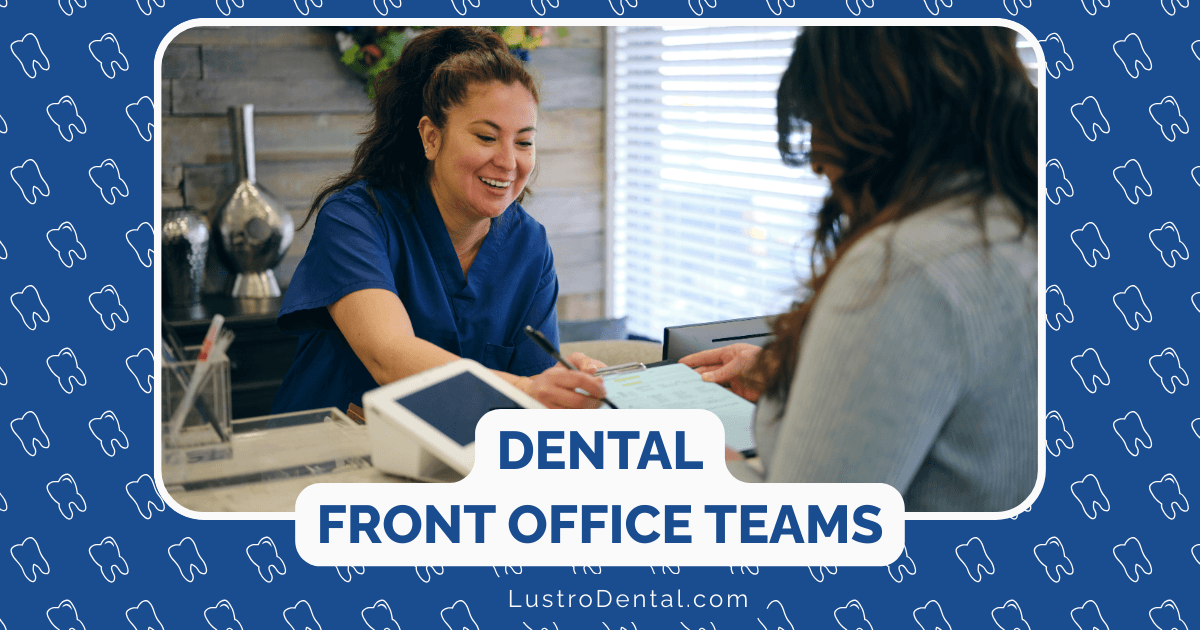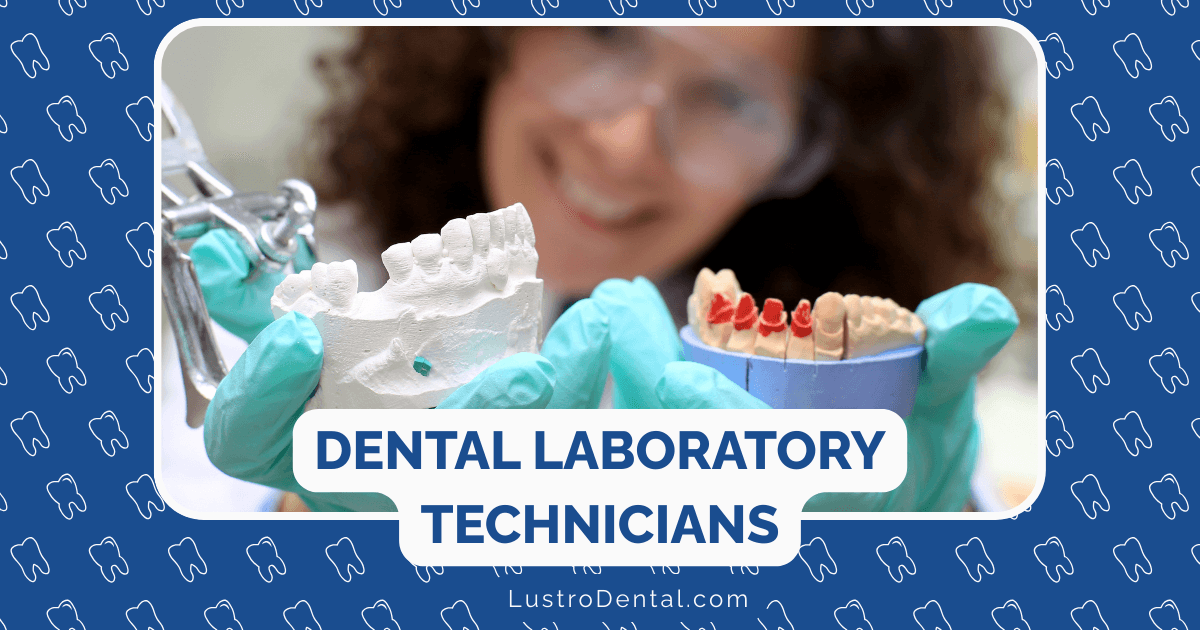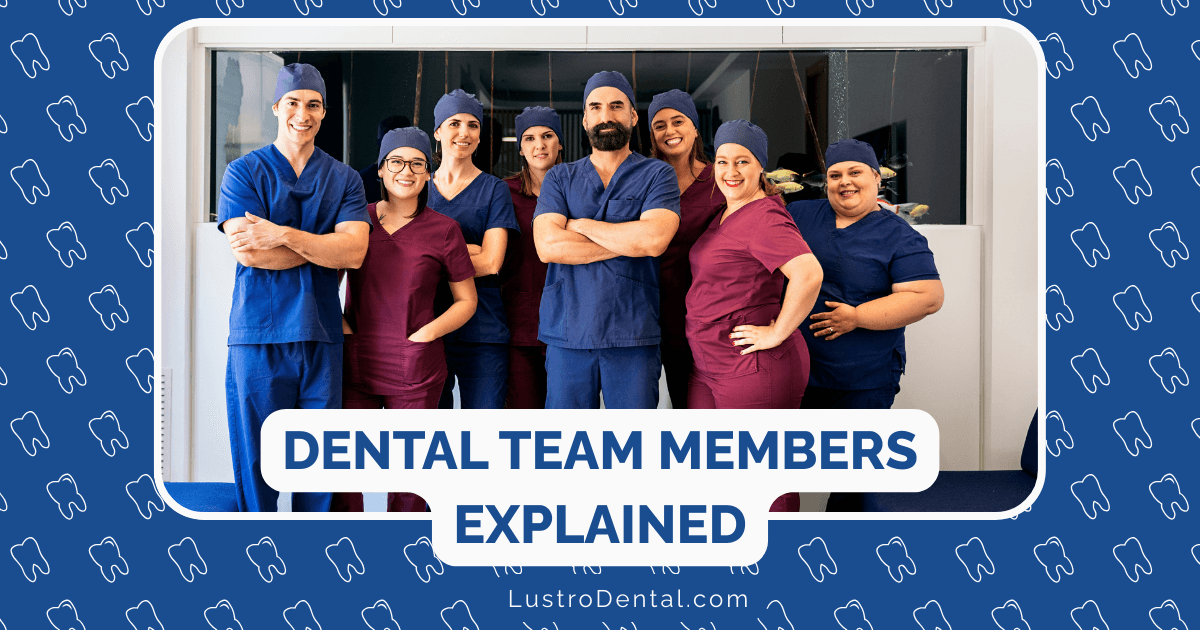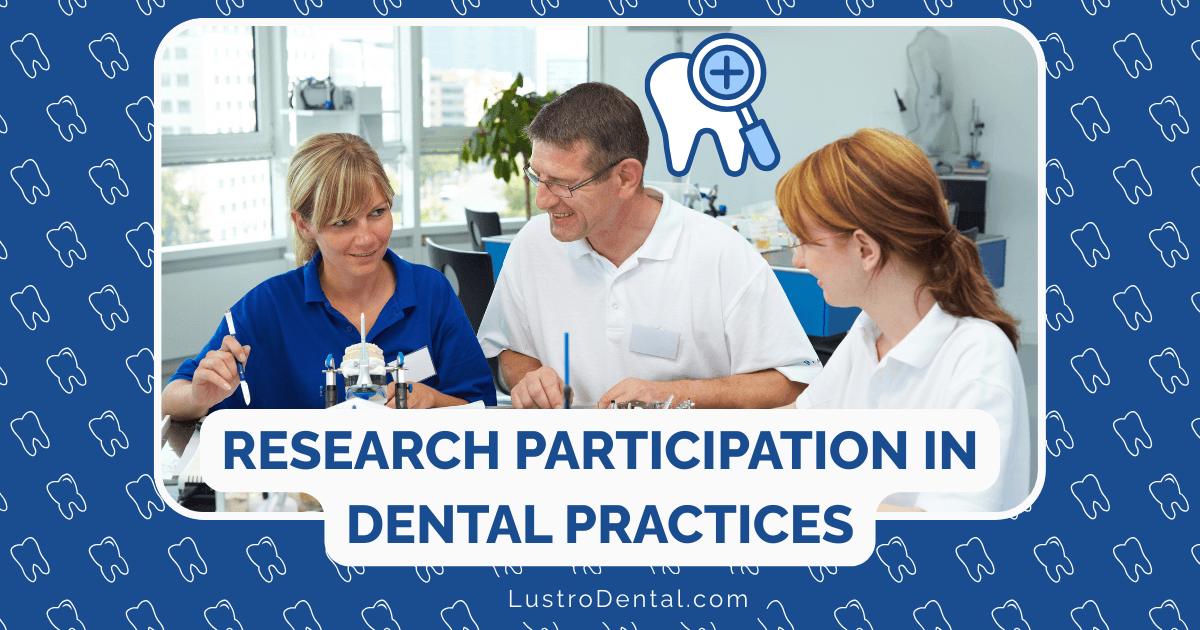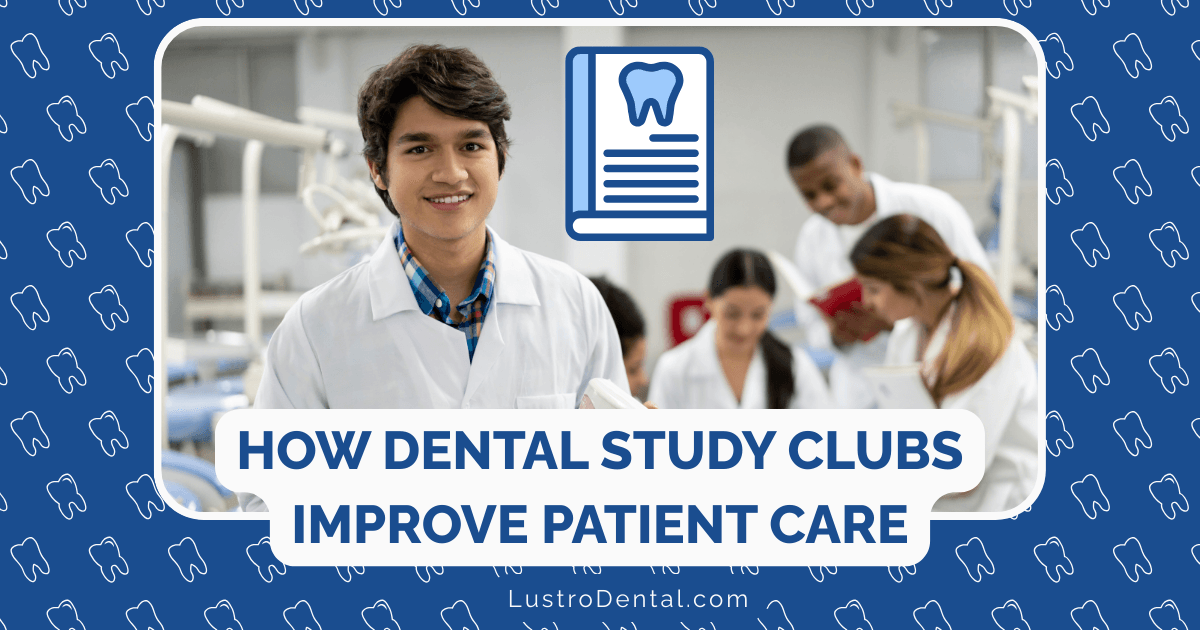Dental Specialists: When Your General Dentist Refers You Out

Receiving a referral to a dental specialist can trigger a mix of emotions—perhaps concern about the complexity of your dental issue, uncertainty about what to expect, or even relief that an expert will address your specific needs. While your general dentist handles most of your routine dental care, there are times when specialized expertise becomes necessary for optimal treatment outcomes.
Understanding the different types of dental specialists, why referrals happen, and what to expect during the process can help ease any anxiety and ensure you receive the most appropriate care for your oral health needs. This comprehensive guide explores the world of dental specialists and helps you navigate the referral process with confidence.
Why Referrals Happen: When Specialists Become Necessary
Your general dentist is trained to handle a wide range of dental procedures, from routine cleanings and fillings to basic restorative work. However, certain conditions require advanced training, specialized equipment, or techniques that fall outside a general dentist’s scope of practice.
Common Reasons for Specialist Referrals
According to the American Dental Association (ADA), referrals typically occur for several reasons:
- Complexity of the Procedure: When a case presents unique challenges that require specialized expertise
- Advanced Technology Requirements: When specialized equipment is needed for diagnosis or treatment
- Patient Safety Considerations: When the procedure carries higher risks that are better managed by a specialist
- Time Constraints: When extensive treatment would be more efficiently handled by a specialist
- Specific Patient Needs: When a patient’s medical history or condition requires specialized care
Dr. Michael Chen, a practicing general dentist, explains: “No single dental provider can address every possible oral health need at the highest level. Referring to specialists allows me to ensure my patients receive the most appropriate care for their specific situation, drawing on the advanced training and focused expertise that specialists offer.”
Types of Dental Specialists: Who Does What
The dental profession includes several recognized specialties, each focused on specific aspects of oral health. Here’s a breakdown of the most common specialists you might be referred to:
Endodontist: The Root Canal Specialist
Focus: Diagnosing and treating diseases and injuries of the dental pulp (the inner tissues of the tooth) and surrounding tissues
Common Referral Reasons:
- Complicated root canal procedures
- Persistent tooth pain of unclear origin
- Failed previous root canal treatment requiring retreatment
- Dental trauma affecting the pulp
- Complex internal tooth anatomy
What Sets Them Apart: Endodontists complete an additional 2-3 years of specialized training after dental school, focusing exclusively on diagnosing tooth pain and performing root canal treatments. According to Ballantyne Endodontics, while the average general dentist performs about two root canals weekly, endodontists may perform 25 or more, developing exceptional skill and efficiency.
Patient Experience: Endodontists use advanced technologies such as operating microscopes, digital imaging, and specialized instruments to treat patients with greater precision. Many patients report that root canal treatment by an endodontist is no more uncomfortable than having a filling placed.
Oral and Maxillofacial Surgeon: The Surgical Specialist
Focus: Surgical treatment of diseases, injuries, and defects of the jaws, face, and surrounding structures
Common Referral Reasons:
- Wisdom teeth removal (especially impacted teeth)
- Dental implant placement
- Complex tooth extractions
- Jaw surgery for misalignment
- Facial trauma reconstruction
- Oral pathology (diagnosis and treatment of oral diseases)
- Temporomandibular joint (TMJ) disorders
What Sets Them Apart: Oral surgeons complete 4-7 years of hospital-based surgical and medical training after dental school. Many earn both dental (DDS/DMD) and medical (MD) degrees. They are qualified to administer all levels of anesthesia, from local to general.
Patient Experience: Depending on the procedure, you may receive treatment under local anesthesia, sedation, or general anesthesia. The surgical setting is typically equipped with advanced monitoring equipment and emergency protocols to ensure patient safety.
Orthodontist: The Alignment Specialist
Focus: Prevention and correction of misaligned teeth and jaws
Common Referral Reasons:
- Crowded or crooked teeth
- Overbites, underbites, and crossbites
- Jaw misalignment
- Spacing issues between teeth
- Treatment planning for comprehensive dental reconstruction
What Sets Them Apart: Orthodontists complete 2-3 years of specialized training after dental school, focusing on the proper way to move teeth and guide facial development using braces, clear aligners, and other appliances.
Patient Experience: Treatment typically begins with a comprehensive evaluation, including X-rays, photographs, and possibly 3D imaging. Treatment plans are highly individualized and may span several months to a few years, with regular adjustment appointments.
Periodontist: The Gum Specialist
Focus: Prevention, diagnosis, and treatment of periodontal (gum) disease and the placement of dental implants
Common Referral Reasons:
- Moderate to severe gum disease
- Gum recession requiring grafting
- Complex dental implant cases
- Persistent gum inflammation despite treatment
- Crown lengthening procedures
- Management of oral manifestations of systemic diseases
What Sets Them Apart: Periodontists complete an additional three years of specialized training after dental school, focusing on the latest techniques for diagnosing and treating periodontal disease and placing dental implants.
Patient Experience: A periodontal appointment typically includes a thorough examination of your gums, measuring the spaces between your teeth and gums, and possibly advanced imaging. Treatment may range from non-surgical therapies like scaling and root planing to surgical interventions for advanced cases.
Prosthodontist: The Restoration Specialist
Focus: Restoration and replacement of missing teeth and oral structures
Common Referral Reasons:
- Complex full-mouth rehabilitation
- Advanced cosmetic concerns
- Multiple missing teeth requiring bridges or dentures
- Complicated dental implant restorations
- Congenital or acquired facial defects
- TMJ-related bite problems
What Sets Them Apart: Prosthodontists complete an additional three years of specialized training after dental school, focusing on advanced techniques for restoring and replacing teeth with artificial substitutes that look, feel, and function naturally.
Patient Experience: Treatment often begins with comprehensive diagnostic records, including impressions, photographs, and various types of imaging. Prosthodontists take a holistic approach, considering aesthetics, function, and long-term oral health in their treatment planning.
Pediatric Dentist: The Children’s Specialist
Focus: Comprehensive oral health care for infants, children, and adolescents, including those with special needs
Common Referral Reasons:
- Behavioral management challenges
- Children with special healthcare needs
- Early childhood caries (severe tooth decay in young children)
- Developmental dental abnormalities
- Dental trauma in children
- Severe dental anxiety
What Sets Them Apart: Pediatric dentists complete an additional 2-3 years of specialized training after dental school, focusing on the unique dental needs of children, behavior management techniques, and treatment approaches specific to developing dentition.
Patient Experience: Pediatric dental offices are designed to be child-friendly, with appropriately sized equipment and an environment that helps reduce anxiety. These specialists are trained in communicating effectively with children and managing their behavior during treatment.
The Referral Process: What to Expect
Understanding the typical referral process can help you navigate this transition in your dental care more confidently.
Initial Discussion with Your General Dentist
When your general dentist determines that a specialist’s expertise would benefit you, they should:
- Explain the reason for the referral in clear, understandable terms
- Discuss which type of specialist is most appropriate for your needs
- Outline what you can expect from the specialist visit
- Address any immediate concerns or questions you might have
According to the ADA’s guidelines on specialty referrals, dentists should “discuss any proposed referral for treatment with patients immediately to involve them in their care decisions” and “clearly explain to patients why a referral is necessary, emphasizing the specialist’s expertise.”
Information Transfer
Your general dentist’s office will typically:
- Prepare a formal referral letter with your diagnosis, treatment history, and reason for referral
- Transfer relevant records, including X-rays and clinical notes
- Provide the specialist’s contact information to you
- Coordinate appointment scheduling in some cases
Some practices may handle the initial appointment scheduling for you, while others will provide you with the specialist’s information to arrange your own appointment.
Your First Specialist Appointment
According to Southern Root, a typical first visit to a dental specialist includes:
- Review of your referral information and records from your general dentist
- Discussion of your dental history and current concerns
- Review of your medical history and medications
- Additional diagnostic procedures as needed (X-rays, 3D imaging, etc.)
- Comprehensive examination specific to the specialist’s focus
- Diagnosis and treatment planning discussion
- Financial and insurance considerations review
This initial appointment typically lasts 1-1.5 hours, depending on the complexity of your case and the type of specialist.
What to Bring
To ensure a smooth first appointment with the specialist, bring:
- Referral slip from your general dentist (if provided)
- Insurance information and identification
- Complete list of medications and supplements you take
- Medical history information, particularly any changes since your last dental visit
- Questions you have about your condition or treatment options
Treatment Coordination and Follow-Up
After your specialist visit:
- The specialist will communicate findings and treatment recommendations to your general dentist
- Your general dentist remains your primary dental care provider
- Ongoing care may be coordinated between both providers
- You’ll typically return to your general dentist for routine care after specialist treatment is complete
Insurance and Financial Considerations
Specialist care often involves additional costs that should be considered as part of your treatment planning.
Insurance Coverage
Before your specialist appointment, it’s advisable to:
- Verify if your dental insurance covers the specialist’s services
- Check if a referral is required for insurance coverage (some plans require formal referrals)
- Understand your coverage limitations for the specific procedures you might need
- Inquire about out-of-network benefits if the specialist isn’t in your insurance network
Many dental specialists’ offices have staff who can help verify your benefits before treatment begins.
Cost Considerations
Specialist fees are typically higher than general dentist fees for similar procedures due to:
- Advanced training and expertise
- Specialized equipment and technology
- Complexity of cases handled
Most specialists offer payment plans or financing options to help manage treatment costs. Don’t hesitate to discuss financial concerns with both your general dentist and the specialist office.
Making the Most of Your Specialist Experience
To ensure you receive the greatest benefit from your specialist referral:
Ask Questions
Don’t hesitate to ask both your general dentist and the specialist:
- Why this particular specialist was chosen
- What alternative treatments might be available
- What outcomes can realistically be expected
- How long the treatment process will take
- What follow-up care will be needed
Maintain Communication
Keep both your general dentist and specialist informed about:
- Changes in your medical history or medications
- New symptoms or concerns that develop
- Questions about your treatment plan
- Insurance or financial changes that might affect your care
Follow Recommendations
Specialist care is most effective when you:
- Attend all scheduled appointments
- Follow pre- and post-treatment instructions
- Complete the full recommended course of treatment
- Maintain good home care as directed
- Return for follow-up visits as scheduled
When to Seek a Second Opinion
While specialist referrals are made with your best interests in mind, there are situations where seeking a second opinion might be appropriate:
- When you’re uncertain about the diagnosis or treatment plan
- When multiple treatment options exist with significantly different approaches
- When the recommended treatment is extensive or costly
- When you don’t feel comfortable with the specialist or their approach
Dr. Lisa Martinez, a dental educator, notes: “Second opinions are a normal part of healthcare and shouldn’t be viewed as questioning anyone’s expertise. They can provide peace of mind and sometimes reveal additional options you hadn’t considered.”
Most reputable specialists and general dentists support patients seeking second opinions when there are questions or concerns.
The Future of Dental Specialization
As dental science advances, the field of dental specialization continues to evolve:
Emerging Subspecialties
Within established specialties, subspecialties are emerging that focus on even more specific aspects of care:
- Microsurgical endodontics
- Digital orthodontics
- Implant prosthodontics
- Regenerative periodontics
- Sleep dentistry
Interdisciplinary Collaboration
Modern complex cases increasingly involve collaboration between multiple specialists for comprehensive care. This team approach ensures that each aspect of your treatment benefits from specialized expertise.
Technological Integration
Advanced technologies are transforming specialist care:
- 3D imaging and treatment planning
- Computer-guided surgical procedures
- Digital smile design
- Artificial intelligence-assisted diagnostics
- Teledentistry consultations
These innovations are making specialist care more precise, efficient, and accessible.
Conclusion: Partners in Your Oral Health Journey
A referral to a dental specialist represents your general dentist’s commitment to ensuring you receive the highest quality care for your specific needs. Rather than viewing it as a handoff, consider it an expansion of your dental care team—bringing in focused expertise exactly when and where it’s needed.
As Dr. James Wilson, a prosthodontist, explains: “The relationship between general dentists and specialists is truly collaborative. We work together, each contributing our unique skills and knowledge, to achieve outcomes that might not be possible otherwise. The patient remains at the center of this collaboration, benefiting from the combined expertise of multiple dental professionals.”
By understanding the roles of different specialists, knowing what to expect during the referral process, and actively participating in your care, you can make the most of this specialized attention and achieve optimal oral health outcomes.
Remember that your general dentist remains your primary dental care provider and coordinator, maintaining the big-picture view of your oral health while specialists address specific concerns with their advanced training and expertise. Together, they form a comprehensive care team dedicated to your dental well-being.


